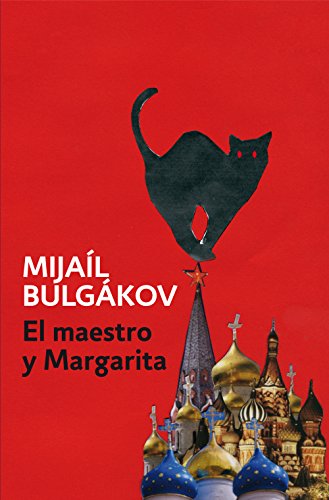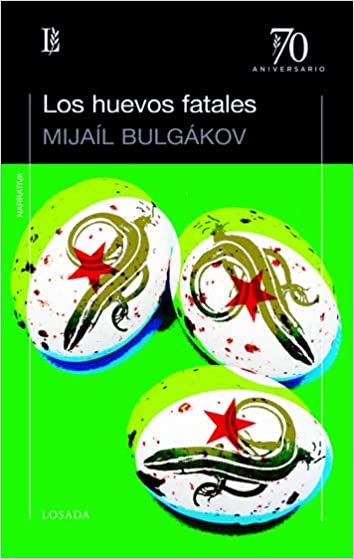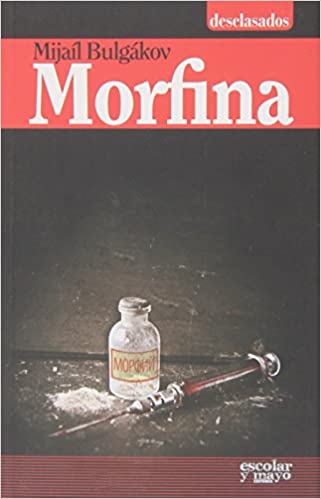The vindictive aura that revolves around the Bulgakov that his own ruthless and burlesque literature is appearing towards criticism with reality disguised under the fabulous or even the fantastic, makes him an author who transcends from a work come to life, deformed chronicle and masked parody.
Annoying for a large part of the Soviet powers, from whom he enjoyed favors while he worked as a doctor or when he was a similar chronicler, (but for whom he became uncomfortable when he decided to devote himself to literature), Bulgakov gradually became a kind of dissident writer, stalked and persecuted by the political police, but saving his skin on countless occasions. Perhaps because of his openly fictional approach, compared to which little could be culled from critical realism.
Perhaps that is why his most critical work such as "The Master and Margarita" became that work never completely finished, always kept in the drawer awaiting more auspicious moments and continually reviewed until his death, and even in his later rescue. many years later.
Also a great writer of short stories or novels, Bulgakov inherits the icy existentialism of Chekhov only that he has passed through a prism that goes from his own disconcerting experience as a doctor to his privileged focus on historical development.
Top 3 Recommended Books by Mikhail Bulgakov
The teacher and Margarita
The will to power is so similar in essence to any historical moment that understanding the validity of a work like this becomes more understandable. But like any other human will, on many occasions it seems forged in the fires of hell by a blacksmith named Devil who tempered by that God who created the human as a disappointing project.
When the devil arrives in Moscow for his periodic review of every city openly surrendered to his designs, we will find an epic protagonist like Margarita, at the height of Dante, a protagonist who flies high above all kinds of inhabitants of a city that it perfectly follows the dictates of the miserable human condition.
Proud of his work, the devil, however, persists in that Margaret who does not compromise with the comfortable temptation of evil that reigns on weaknesses and temptations that are easily corruptible and strangely justifiable between reason and conscience.
There is a point of strangeness at the core of the story, but not a complete deconstruction of the work that shows us a disruptive creation for the author's time. The thread is clear and the curious meta-literary subplots far from the main historical moment (in time and space) serve to link everything, to focus more intensely on the main scene, the future of the devil through a world made his faithful court, among the abhorrent. and the comic.
Except Margarita, improvised heroine of a possible residual morality despite everything. Because no matter how much we are told about the apple and Paradise, it is more than likely that it was Adam himself who carved the fruit. The devil would take care of writing everything backwards.
The fatal eggs
Perhaps the only way to face totalitarianisms to be able to combat them from the civil conscience are the fables in the style of George Orwell or the satirical fantasy that this novel represents.
Because it certainly doesn't matter if a dictatorial regime, be it left-wing or right-wing. The problem is fear, the consequent submission and the derived ability to make the majority of citizens into servile believers. To the point of the more than possible attack on everything that sounds like dissidence by any of the individuals infected by that initial fear. Under a layer of fantasy that is not so fantasy, the author dispatches harsh reality with his usual bursts of humor, sometimes hurtful, always shrewd and intelligent.
Professor Persikov is involved in investigating the adulteration of animals and plants so that they grow disproportionately (sounds like our genetic alteration of food). But in the end, their animals and templates, conditioned by government demands to enhance that capacity, reach worrying, monstrous, dreamlike levels of greatness... And of course, in the end the monsters find their way to escape and threaten to take down all of Russia. because of the stupidity of those who believe they can dominate everything at their whim.
Morphine
If it could be conceived that Edgar Allan Poe had been reincarnated in a Russian writer, this work could be understood as the clearest evidence. Beyond the final intention of one or the other author, undoubtedly marked by the historical circumstances of each one and by the creative imprint that ultimately led them to write, the parallel fondness for the fantastic of both authors plus taste by narcotics led to that creativity sometimes obscured.
Leading and taking us readers through those scenarios visited in life by habitual users of various drugs. But the point is to discover in a work like this the description of the process, the staging of the trip to those psychedelic paradises, in this case drawn in the consciousness by morphine.
As a young doctor and perhaps overtaken by his profession, facing situations he had not imagined, Bulgakov turned to this drug for evasion. In this book we go through those days of the young doctor facing the launch of his crash into practice in the most crude and unexpected way, facing cases that he could never have calculated for his specialization.



